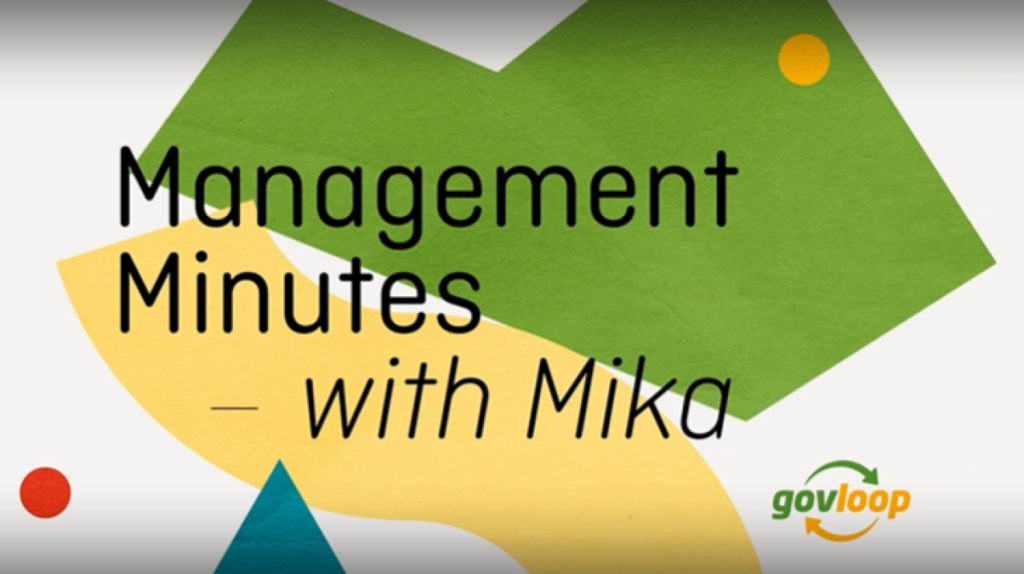Government workforce expert Mika Cross is back with her “Management Minutes with Mika” video series and this time she’s not alone. Cross sat down with Sarah Moffat, Senior Advisor of Cyber Workforce Management, U.S. Department of Veterans Affairs, to talk about the impact of “quiet quitting” in the workplace.
When asked by Cross to define “quiet quitting,” Moffat described it as not quitting your job, but instead, quitting the effort of going above and beyond.
“It means you are done with work at the end of the day, and you’re putting in a 40-hour work week – there’s no more free work at the sacrifice of your personal life,” she said.
She called it a “rejection of hustle culture,” which she said many people fell victim to and now realize it “doesn’t bring them harmony and joy, and instead leads to being drained and feeling burnt out.”
Moffat did call on folks to evaluate why they wanted to quiet quit, however, to see if it was something they could address versus simply drawing back.
“Don’t rob yourself of the chance to address an inequity,” she said.
She also recognized that not everyone could quiet quit without consequences.
“It’s definitely easier for some than others – for underrepresented groups in the workplace, it can be detrimental to their careers due to bias,” she acknowledged.
Cross wrapped up the interview by asking what leadership could do to reduce the urge to quiet quit, and Moffat said self-awareness was key.
“What kind of environment are you creating?” she asked. “Are you setting or modeling unhealthy standards? You have to be self-aware in order to mitigate an unbalanced environment.”
For more advice on quiet quitting, watch the interview now. You can also see more Management Minutes with Mika video clips on academy.govloop.com.
